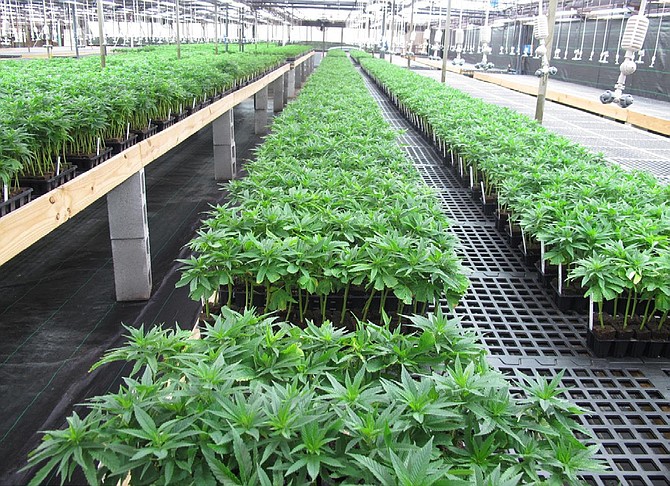Proposed cannabis farm aided by consulting firm
Proposed cannabis farm aided by consulting firm
BY WENDELL HUTSON, Contributing Writer
A startup business was able to secure $144 million in funding for a proposed hemp farm in the south suburbs thanks to a Homewood-Flossmoor entrepreneur and his Chicago consulting firm.
In 2008, Fredrick Blackman founded DB Matterhorn Group Inc., a black-owned, capital funding consulting firm he said prepares, positions and presents clients for funding through third party resources. Until now, Blackman said the most funding his downtown firm helped secure for a client was $5 million.
“We get them [clients] lined up for funding and that could mean having our accountants analyze their finances to helping them create a business plan,” said Blackman.
According to Blackman, his firm recently assisted a client, OEP Group, with funding to build a 1.6 million square-foot indoor hemp facility in the south suburbs, which would serve as a hemp farm and processing plant.
An exact suburban location has not yet been determined, but the company’s five owners, who asked to remain anonymous, confirmed it is looking at south suburban locations.
“No land has been purchased yet or proposals made to any suburban villages. As far as a timetable when the plant will be up and running, that’s still in the planning stages,” said Blackman. “Their dream is to be the biggest cannabis company in the world. Cannabis is a global marketplace.”
While hemp is classified as cannabis, it is used more to develop products such as automobiles, body care, clothing, construction, food, and plastic. The chemical makeup of hemp is 0.3 percent, while marijuana has a chemical makeup of 5 to 35 percent.
“Hemp is cannabis but it’s not marijuana. It is oil extracted from marijuana plants,” added Blackman.
And one industry Blackman said could benefit from a hemp facility is farmers.
“I guarantee you the farmers are going to jump on this and start growing hemp,” he contends. “Look for farmers to get more involved with hemp once it takes off.”
Norbert Brauer, president of the Illinois Farmers Union, was unavailable for comment.
However, legal experts said while recreational marijuana has been legalized in 10 states, the federal government has not legalized it. And even more states, such as Illinois, allow people to use marijuana for medical purposes.
“Banks that deal in the industry could be liable for charges of money laundering if the U.S. Justice Department chose to prosecute them,” said Martin Snow, a Chicago attorney. “Even Brinks trucks won’t transport cash for cannabis companies. Without access to the banking system, marijuana companies might have to operate solely in cash, unable to write checks, make deposits and obtain loans.”
In 2018, Illinois’ medical cannabis program had gross sales of $136.5 million, according to the state Treasurer’s Office. State lawmakers have drafted a bill to legalize recreational marijuana and if passed and signed by the governor, analysts estimate Illinois could generate sales of $224 million by 2022.
Big deals involving millions of dollars don’t come easy especially for black-owned businesses, contends Blackman.
“Usually the Europeans get these types of deals with all this money involved. These big deals don’t usually come to guys of color like me but that’s what I love about this deal,” explained Blackman. “It’s by black people, for black people and owned by black people.”
Latest Stories
- ISBE and Lurie Children’s Launch Free, Data-Informed Resilience-Supportive Schools Illinois Initiative to Strengthen Student Mental Health and Resilience in All Schools
- Alzheimer’s Association Illinois Chapter Strengthens Commitment to Health Equity Through Diversity and Inclusion Initiatives
- Actress Draws From Life Experiences For Music And Acting Preparation
- Former Journalist’s Fragrance Company Promotes Self Care
- Doctors Provide Information About Resources For Women Experiencing Menopause
Latest Podcast
STARR Community Services International, Inc.

